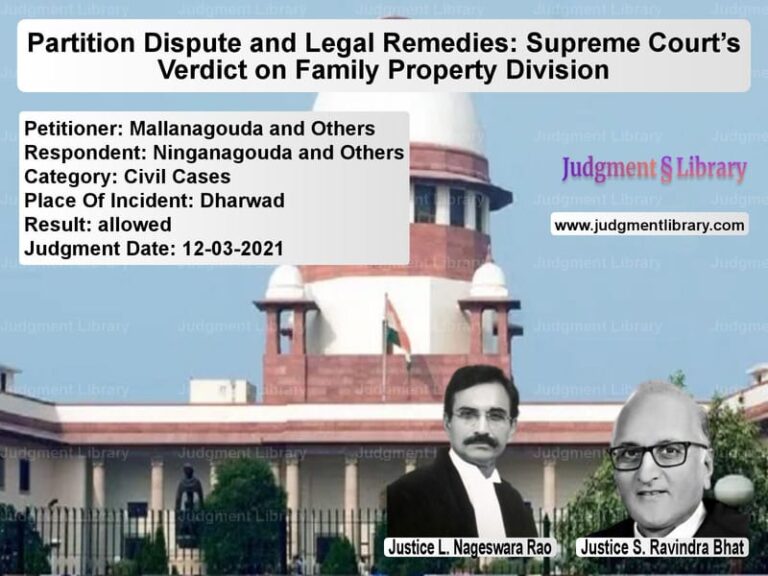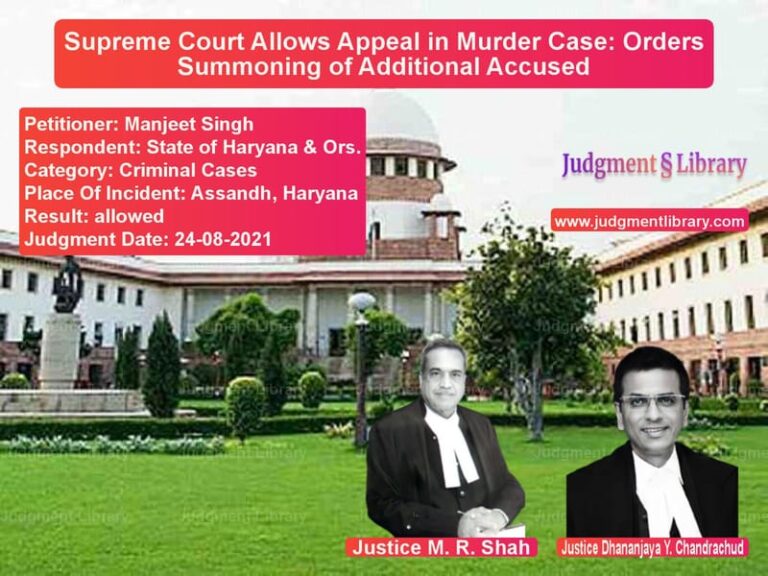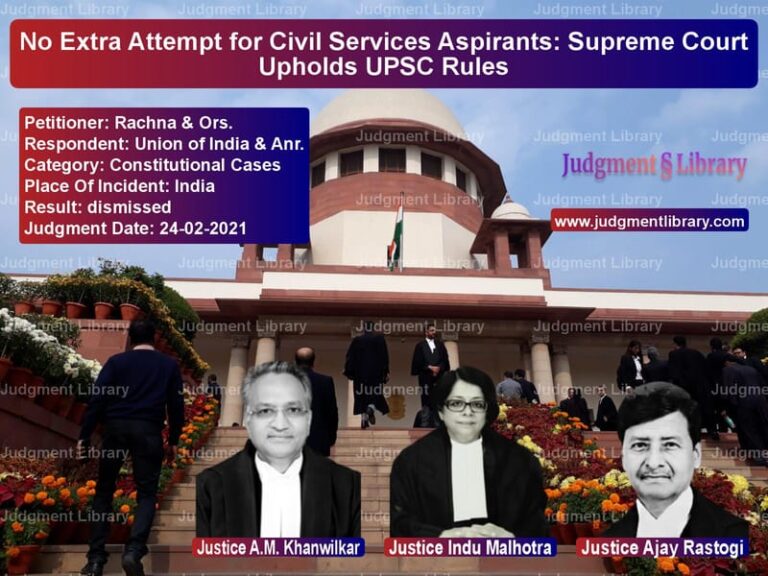Supreme Court’s Landmark Judgment on Senior Advocate Designation: A Step Towards Transparency
The case of Indira Jaising vs. Supreme Court of India Through Secretary General and Others is a landmark ruling that brings much-needed reforms to the process of designating Senior Advocates in India. The Supreme Court, recognizing the arbitrariness and opaqueness of the existing selection process, introduced new guidelines that ensure transparency, merit-based selection, and inclusivity.
This case was filed by Senior Advocate Indira Jaising, a renowned human rights lawyer, under Article 32 of the Constitution. She challenged the arbitrary system of designating Senior Advocates, arguing that it violated fundamental rights under Articles 14 (equality before law) and 21 (right to dignity and fair treatment). The petition sought structural reforms to the process of conferring Senior Advocate status, demanding a more merit-based, structured, and transparent mechanism.
Background of the Case
The designation of Senior Advocates in India has traditionally been governed by Section 16(2) of the Advocates Act, 1961. According to this provision, the Supreme Court and High Courts have the power to designate advocates as ‘Senior Advocates’ based on their standing at the Bar and their legal expertise. However, the selection process was largely discretionary, often based on subjective factors without clear guidelines.
Ms. Jaising’s petition highlighted multiple issues with the existing process:
- Arbitrariness: There were no objective criteria for selection, and the process was largely dependent on judicial discretion.
- Lack of transparency: Applications were decided behind closed doors, with no public scrutiny or reasoning provided for selections.
- Gender disparity: The number of women designated as Senior Advocates was disproportionately low, raising concerns about bias.
- Lack of representation: Advocates practicing in specialized fields like constitutional law, human rights, and legal aid were often overlooked in favor of commercial law practitioners.
Legal Issues Raised
- Whether the existing selection process violated Article 14 (equality before law) by being arbitrary.
- Whether the Supreme Court and High Courts needed to adopt structured guidelines to ensure fair selection.
- Whether a transparent mechanism, including public disclosure of applications and voting records, was required.
Arguments of the Petitioner (Indira Jaising)
Ms. Jaising argued that:
- The existing system of voting by Judges was opaque and subjective, often influenced by personal preferences.
- Designation should be based on clear and measurable factors such as contribution to legal literature, landmark cases argued, and pro bono work.
- A permanent selection committee should be constituted to evaluate applications objectively.
- Public scrutiny should be introduced, including making applications and selection criteria publicly accessible.
Arguments of the Respondents (Supreme Court of India and Others)
The respondents defended the existing system but acknowledged that reforms could be introduced. They argued:
- The existing Full Court system ensured that only deserving advocates were designated as Seniors.
- Selection based on votes of Judges was a long-standing practice that had worked effectively.
- While transparency could be improved, complete public disclosure of voting records might discourage candid discussions.
Supreme Court’s Observations
The Supreme Court, while appreciating the concerns raised by Ms. Jaising, acknowledged that the existing system lacked objectivity. The Bench, led by Justice Ranjan Gogoi, emphasized the need for structured evaluation criteria. The Court noted:
- “The current system lacks objectivity, and there is a need for a structured, merit-based process.”
- “A balance must be maintained between judicial discretion and structured assessment.”
- “A detailed, point-based assessment should be introduced to bring fairness to the selection.”
New Guidelines Issued
The Supreme Court issued comprehensive guidelines to govern the designation of Senior Advocates:
- A Permanent Selection Committee will be established, headed by the Chief Justice of India, two senior-most Judges, the Attorney General (or Advocate General in High Courts), and a senior member of the Bar.
- A Secretariat will be set up to collect, verify, and process applications.
- Applications will be assessed based on measurable criteria such as:
- Number of years of practice
- Landmark cases argued
- Contributions to legal academia
- Pro bono legal work
- A point-based system will be introduced to assign scores based on merit.
- All applications will be published on the Court’s website for public scrutiny.
- The final selection will be made by the Full Court, with the decision published along with brief reasons.
Impact of the Judgment
This ruling marks a significant step towards transparency in the legal profession. The decision ensures:
- Elimination of favoritism and subjectivity in the selection process.
- Recognition of diverse contributions to the legal field, including academic and pro bono work.
- Encouragement of more women and advocates from marginalized communities to apply.
- Public scrutiny and accountability in the designation process.
The ruling strengthens the credibility of the legal profession and ensures that designations are awarded based on merit and contributions to the justice system. It is a significant reform in India’s legal framework and a step towards a more inclusive and fair legal profession.
Don’t miss out on the full details! Download the complete judgment in PDF format below and gain valuable insights instantly!
Download Judgment: Indira Jaising vs Supreme Court of Ind Supreme Court of India Judgment Dated 12-10-2017.pdf
Direct Downlaod Judgment: Direct downlaod this Judgment
See all petitions in Fundamental Rights
See all petitions in Constitution Interpretation
See all petitions in Public Interest Litigation
See all petitions in Judgment by Ranjan Gogoi
See all petitions in Judgment by Rohinton Fali Nariman
See all petitions in Judgment by Navin Sinha
See all petitions in allowed
See all petitions in supreme court of India judgments October 2017
See all petitions in 2017 judgments
See all posts in Constitutional Cases Category
See all allowed petitions in Constitutional Cases Category
See all Dismissed petitions in Constitutional Cases Category
See all partially allowed petitions in Constitutional Cases Category







